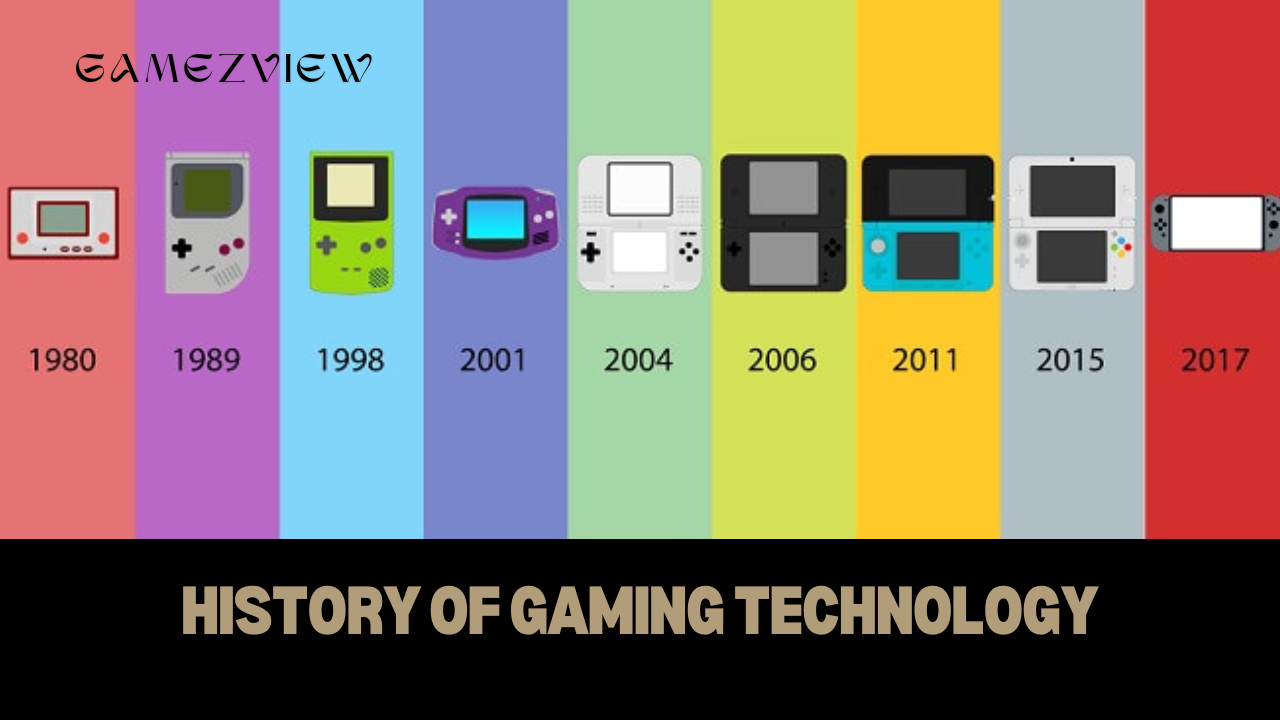Blockchain technology, often associated with cryptocurrencies like Bitcoin and Ethereum, is making significant waves far beyond the realm of digital currencies. Its innovative approach to data storage and security is proving transformative across various sectors, from supply chain management to healthcare. This article explores how blockchain is revolutionizing industries beyond cryptocurrency, focusing on its applications, benefits, and future potential.
Understanding Blockchain Technology
Before diving into its applications, it’s essential to grasp the fundamentals of blockchain technology. At its core, blockchain is a decentralized ledger that records transactions across multiple computers so that the record cannot be altered retroactively without altering all subsequent blocks. Each “block” in the chain contains a list of transactions, and once a block is added to the chain, it is permanently recorded and distributed across the network.
This decentralized nature ensures transparency and security, as it eliminates the need for a central authority and reduces the risk of fraud or tampering. The immutability of blockchain records makes it a powerful tool for various applications beyond financial transactions.
Exploring the Potential of Augmented Reality (AR) in Everyday Life
Supply Chain Management
1. Enhancing Transparency and Traceability
One of the most promising applications of blockchain is in supply chain management. Traditional supply chains often suffer from a lack of transparency and traceability. Blockchain technology addresses these issues by providing a clear and unalterable record of every transaction and movement within the supply chain.
For instance, companies like IBM and Walmart are leveraging blockchain to track the journey of products from farm to table. This technology enables stakeholders to verify the authenticity of products, ensuring they meet quality and safety standards. In cases of food recalls, blockchain can pinpoint the exact source of contamination, minimizing the scope and impact of the recall.
2. Reducing Fraud and Errors
Blockchain reduces the potential for fraud and errors in supply chains by providing a single source of truth. Since all transactions are recorded on a public ledger, any discrepancies or fraudulent activities can be quickly identified and addressed. This level of transparency helps build trust among consumers and partners, as they can independently verify the information provided.
3. Streamlining Processes and Reducing Costs
The use of blockchain in supply chains can also streamline processes and reduce costs. By automating and digitizing transactions through smart contracts—self-executing contracts with the terms of the agreement directly written into code—companies can eliminate the need for intermediaries and reduce administrative overhead.

Healthcare
1. Improving Data Security and Privacy
In the healthcare sector, blockchain technology holds the promise of enhancing data security and privacy. Patient data is highly sensitive and needs to be protected from unauthorized access. Blockchain provides a decentralized and encrypted way to store and share patient records, ensuring that only authorized individuals can access the information.
For example, companies like MedRec are developing blockchain-based systems to manage electronic health records (EHRs). These systems allow patients to have greater control over their health data and share it seamlessly with healthcare providers, improving the coordination and quality of care.
2. Facilitating Drug Traceability
Blockchain can also play a crucial role in drug traceability. The pharmaceutical industry faces challenges with counterfeit drugs, which can pose significant risks to patient health. Blockchain technology can create a transparent and immutable record of drug production, distribution, and sales, helping to prevent counterfeit products from entering the market.
By tracking each step of the drug supply chain on a blockchain, stakeholders can verify the authenticity of medications and ensure they are safe for consumption. This level of traceability also helps in managing recalls and reducing the prevalence of counterfeit drugs.
3. Streamlining Clinical Trials
Clinical trials are a critical component of medical research, but they often face issues related to data integrity and transparency. Blockchain can enhance the reliability of clinical trial data by providing a secure and transparent way to record and verify trial results.
Smart contracts can automate various aspects of clinical trials, such as participant consent and data collection. This automation reduces the risk of human error and ensures that the data collected is accurate and tamper-proof. As a result, researchers can have greater confidence in their findings, and regulatory bodies can more easily verify compliance with trial protocols.
Real Estate
1. Simplifying Property Transactions
The real estate industry is often bogged down by lengthy and complex transactions involving multiple parties and layers of paperwork. Blockchain technology can simplify this process by providing a decentralized platform for recording property transactions. This can streamline the buying and selling process, reduce the need for intermediaries, and lower transaction costs.
For instance, blockchain can facilitate the creation and transfer of property titles and deeds. Smart contracts can automate various aspects of the transaction, such as escrow payments and title transfers, making the process faster and more secure.
2. Enhancing Transparency and Reducing Fraud
Real estate transactions are prone to fraud and disputes, often due to discrepancies in property records or fraudulent claims. Blockchain’s immutable ledger can enhance transparency by providing a clear and unalterable record of property ownership and transaction history.
By recording all property-related transactions on a blockchain, stakeholders can easily verify the legitimacy of ownership and resolve disputes more efficiently. This increased transparency helps build trust among buyers, sellers, and investors.
3. Facilitating Tokenization of Real Estate Assets
Blockchain technology also enables the tokenization of real estate assets. Tokenization involves converting real estate properties into digital tokens that represent ownership shares. This process allows for fractional ownership, making real estate investment more accessible to a broader range of investors.
For example, a commercial property could be tokenized into multiple shares, which can then be bought and sold on blockchain-based platforms. This approach opens up new investment opportunities and can help democratize access to real estate assets.
Finance and Banking
1. Revolutionizing Payments and Transfers
Blockchain technology is transforming the finance and banking sectors by revolutionizing payments and money transfers. Traditional financial systems often involve intermediaries and can be slow and costly, particularly for international transactions. Blockchain enables faster and more cost-effective transactions by removing the need for intermediaries.
Cryptocurrencies like Bitcoin and Ethereum are well-known applications of blockchain for payments, but the technology’s impact extends beyond digital currencies. Financial institutions are exploring blockchain for cross-border payments, reducing transaction times from days to minutes and lowering costs associated with international transfers.
2. Enhancing Security and Fraud Prevention
Blockchain’s security features also benefit the finance industry by enhancing fraud prevention and reducing security risks. Traditional banking systems are vulnerable to cyberattacks and fraud, but blockchain’s decentralized and encrypted nature makes it more resistant to these threats.
Financial institutions are leveraging blockchain to improve security measures, such as identity verification and anti-money laundering (AML) processes. By recording and verifying transactions on a blockchain, banks can detect and prevent fraudulent activities more effectively.
3. Streamlining Trade Finance
Trade finance involves complex processes and documentation, often leading to inefficiencies and delays. Blockchain technology can streamline trade finance by providing a transparent and immutable record of trade transactions. This can simplify documentation, reduce the risk of fraud, and improve the efficiency of trade finance processes.
For example, blockchain can automate and digitize letters of credit, bills of lading, and other trade documents through smart contracts. This digitization reduces paperwork, accelerates processing times, and enhances the overall efficiency of trade finance.
Energy Sector
1. Optimizing Energy Distribution
The energy sector is exploring blockchain technology to optimize energy distribution and consumption. Traditional energy grids are centralized and often inefficient, leading to energy losses and higher costs. Blockchain can enable more efficient energy distribution by creating decentralized energy grids.
For example, blockchain-based platforms can facilitate peer-to-peer energy trading, allowing individuals and businesses to buy and sell excess energy directly with each other. This approach can enhance grid stability, reduce energy costs, and promote the use of renewable energy sources.
2. Enhancing Transparency in Energy Markets
Blockchain can also improve transparency in energy markets by providing a secure and immutable record of energy transactions. This transparency can help prevent fraud, ensure fair pricing, and increase accountability among market participants.
For instance, blockchain technology can track the origin and movement of energy from renewable sources, such as wind or solar power. This tracking ensures that renewable energy is accurately accounted for and helps consumers make informed choices about their energy sources.
3. Streamlining Energy Trading and Settlement
Energy trading involves complex processes and transactions, often involving multiple parties and intermediaries. Blockchain technology can streamline energy trading by automating and digitizing transactions through smart contracts.
By recording all energy trading activities on a blockchain, stakeholders can reduce administrative overhead, minimize errors, and accelerate settlement times. This streamlined approach enhances the efficiency of energy trading and helps reduce costs for all participants.

Government and Public Sector
1. Improving Voting Systems
Blockchain technology has the potential to revolutionize voting systems by providing a secure, transparent, and tamper-proof method of recording votes. Traditional voting systems are often susceptible to fraud and errors, undermining the integrity of elections.
Blockchain-based voting systems can ensure that votes are accurately recorded and counted, reducing the risk of manipulation or tampering. Additionally, the transparency of blockchain allows for independent verification of election results, increasing public trust in the electoral process.
2. Enhancing Public Records Management
Government agencies often manage large volumes of public records, such as land titles, birth certificates, and marriage licenses. Blockchain can improve the management of these records by providing a secure and immutable platform for recording and accessing public information.
For example, blockchain can streamline the process of updating and verifying public records, reducing the risk of errors and fraud. This enhanced efficiency can lead to cost savings and improved services for citizens.
3. Streamlining Welfare and Subsidy Programs
Blockchain technology can also enhance the efficiency and transparency of welfare and subsidy programs. Traditional programs often face challenges related to fraud, mismanagement, and delays in disbursement.
Blockchain can automate and digitize the distribution of welfare benefits and subsidies through smart contracts. This automation ensures that funds are distributed accurately and transparently, reducing the risk of fraud and improving the overall effectiveness of social programs.
The Future of Artificial Intelligence: Trends and Predictions
Legal Industry
1. Automating Legal Processes with Smart Contracts
The legal industry is exploring blockchain technology to automate various legal processes through smart contracts. Smart contracts are self-executing agreements with the terms of the contract directly written into code. These contracts automatically execute and enforce the terms of an agreement when predefined conditions are met.
For example, smart contracts can automate tasks such as contract execution, payment processing, and compliance monitoring. This automation reduces the need for intermediaries, speeds up legal processes, and lowers costs for clients.
2. Enhancing Contract Management and Dispute Resolution
Blockchain can also improve contract management and dispute resolution by providing a secure and transparent platform for recording and verifying agreements. The immutable nature of blockchain records ensures that contract terms are accurately documented and can be easily accessed by all parties involved.
In the event of a dispute, blockchain records can serve as an objective source of truth, helping to resolve conflicts more efficiently. This enhanced transparency can reduce the likelihood of disputes and improve the overall efficiency of contract management.
3. Protecting Intellectual Property Rights
Intellectual property (IP) rights are critical for creators and innovators, but protecting these rights can be challenging. Blockchain technology offers a solution by providing a secure and immutable record of IP ownership and transactions.
For instance, blockchain can record and verify the creation and ownership of digital assets, such as patents, trademarks, and copyrights. This approach ensures that IP rights are accurately documented and protected, reducing the risk of infringement and unauthorized use.

Future Potential and Challenges
1. Expanding Blockchain Applications
As blockchain technology continues to evolve, its potential applications are expanding across various industries. Innovations such as blockchain-based identity verification, decentralized finance (DeFi), and non-fungible tokens (NFTs) are opening up new possibilities and opportunities.
For example, blockchain-based identity solutions can provide secure and decentralized ways to verify personal and professional identities. DeFi platforms are leveraging blockchain to create decentralized financial services, such as lending and borrowing, without traditional intermediaries. NFTs are revolutionizing digital ownership and asset management by providing unique, verifiable tokens for digital and physical assets.
2. Addressing Scalability and Integration Challenges
Despite its potential, blockchain technology faces challenges related to scalability and integration. As blockchain networks grow, they may encounter limitations in processing speed and transaction volume. Additionally, integrating blockchain with existing systems and processes can be complex and require significant investment.
To address these challenges, ongoing research and development efforts are focused on improving blockchain scalability and interoperability. Innovations such as layer-2 solutions, sharding, and cross-chain protocols aim to enhance the performance and versatility of blockchain technology.
3. Navigating Regulatory and Ethical Considerations
The widespread adoption of blockchain technology also raises regulatory and ethical considerations. Governments and regulatory bodies are grappling with how to address issues such as data privacy, security, and compliance within blockchain networks.
Ethical considerations related to blockchain, such as the environmental impact of energy-intensive consensus mechanisms and the potential for misuse, also need to be addressed. As blockchain technology continues to evolve, it will be crucial to develop balanced and effective regulatory frameworks that promote innovation while safeguarding public interests.
Blockchain technology is poised to transform a wide range of industries beyond cryptocurrency. Its decentralized, transparent, and secure nature offers significant benefits across sectors such as supply chain management, healthcare, real estate, finance, energy, government, and the legal industry. As blockchain continues to evolve, its applications are expected to expand, driving innovation and creating new opportunities for businesses and individuals alike.

While challenges related to scalability, integration, and regulation remain, ongoing advancements in blockchain technology hold the promise of addressing these issues and unlocking their full potential. As industries continue to explore and adopt blockchain solutions, the technology is likely to play a pivotal role in shaping the future of various sectors and driving positive change across the global economy.



